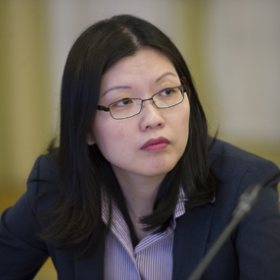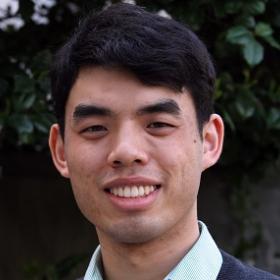
Piin-Fen Kok Interviewed by Asia News Weekly on the Implications of Abe's Address to U.S. Congress
On April 29, Japanese Prime Minister Shinzo Abe will address a joint session of the U.S. Congress in the run-up to the 70th anniversary of the end of the Second World War. Piin-Fen Kok, director of the China, East Asia and United States Program at the EastWest Institute, discussed the potential implications of the speech on the March 27th edition of the Asia News Weekly podcast.
Watch Kok's interview at 1:06
To listen to the podcast, click here.
Key excerpts from her comments are below:
On the ramifications of Japanese Prime Minister Shinzo Abe being invited to address a joint session of the U.S. Congress:
“As far as I understand, no sitting Japanese prime minister has ever addressed a joint session of both houses in Congress, so this is a big deal… It’s a very interesting time right now for U.S.-Japan relations. On the economic front, both are concluding negotiations on the Trans-Pacific Partnership, and the congressional role is very important in the U.S. because the president would need the Congress to grant fast-track trade promotion authority to facilitate the TPP. On the security front, the two countries are revising their defense guidelines in recognition of the more proactive global role that Japan wants to take on. But this year is the 70th anniversary of the end of World War II, so a great amount of attention both in the U.S. and globally, and especially in the Asia region, will be paid to Abe’s remarks about Japan’s role in the war.”
On the implications for the U.S. in Asia if Prime Minister Abe were invited to address the joint session and not take a more repentant view of history:
“I think that it would not be well received at all in Asia, especially by its two closest neighbors, China and Korea. And from the point of view of China, that would fuel even further the narrative by the Chinese that the U.S. is just enabling Japan for its own selfish strategic goals and ignoring history and the role that Japan has played in the war. And for Korea it’s just going to be a very tricky situation for the U.S. in trying to manage relations with its two main allies in the region… It’s been a rough time these days for America’s relations with its allies in other parts of the world, whether it’s tensions with Israel over Iran, or the UK, France and other European allies joining the Asian Infrastructure Investment Bank led by China. So I think the U.S. could scarcely afford any blow-up in relations between Japan and Korea.”
On whether Abe may adopt less apologetic language in his address for the 70th anniversary of the end of World War II:
“I think Abe had said himself back in January that he does plan to express remorse for Japan’s role in the war and to uphold the statements given by previous Japanese leaders. So I think in general he would probably abide by the spirit of what has been said before. Like they say, the devil is in the details—it’s all a matter of how nuanced an interpretation he himself wants to give, and things like referring to aggression, whether he would mention that kind of verbiage.”
On Japan’s reinterpretation of Article 9 of its constitution to allow for collective self-defense and its ramifications for U.S. interests in Asia:
“I think we need to make a distinction between reinterpreting Article 9, which is what is happening now, with the ruling coalition preparing a timetable and draft legislation to the Diet to be passed to lift the ban on collective self-defense... That is distinctly different from actually changing the constitution, which some have said is the ultimate goal of Prime Minister Abe. But changing the constitution will require a public referendum, and given the split in public opinion about this issue, that’s going to be exceedingly difficult and almost impossible to achieve... About the prospects of the legislation in the Diet that is most likely to be presented in the coming months or by next year, if it should for some reason or another fail, that would conceivably eliminate what Japan under Prime Minister Abe would desire to do in terms of a more proactive role in partnering with the U.S. and other countries in the region to defend their maritime interests, whether it’s in the East China Sea or in the South China Sea.
"But even so, even if the legislation is passed, the whole notion of collective self-defense, or CSD, faces severe, specific constraints under which such collective self-defense can be exercised. So in itself, the parameters are pretty narrow for Japan to have greater flexibility in the role of its SDF. So I think, again, a lot will depend on internal politics and a lot will depend on the coalition partner, the Komeito, which has its own reservations and adopts a more pacifist stance. Talking to Japanese experts and Japan watchers, the general sense is that to the extent that legislation is passed, it will most likely be pretty watered down, constrained and limited.”


